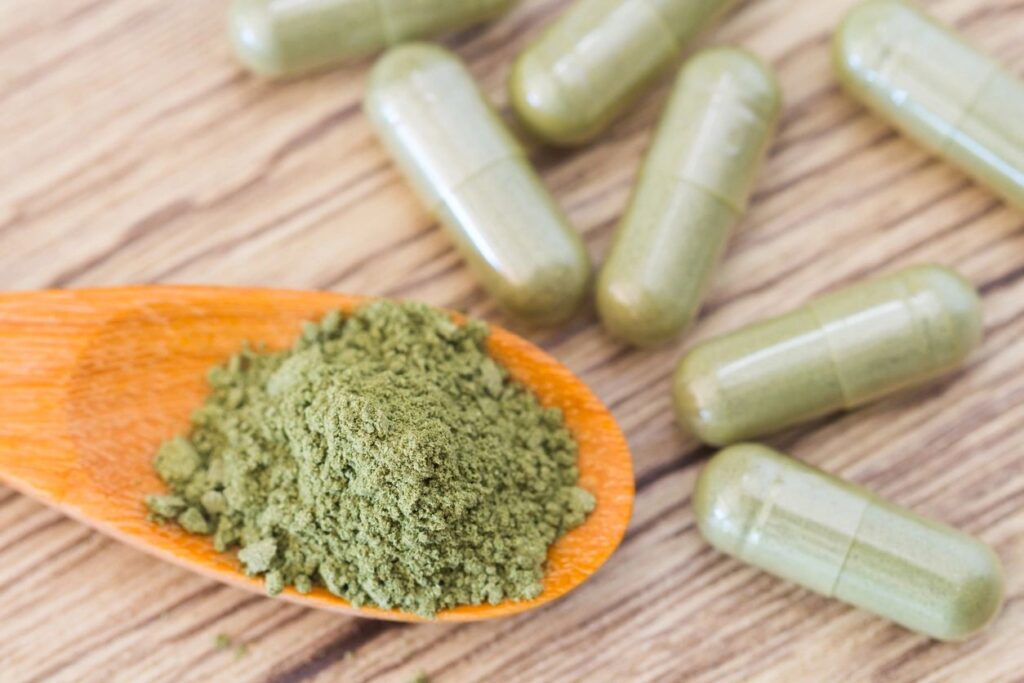In recent times, people living with mental illnesses like depression are resorting to natural remedies. Most people do this to try and minimize the side effects that arise from taking prescribed medications.
So today, I’ll be looking at one dietary supplement recommended for depression treatment. I’m referring to the 5-hydroxytryptophan, which is usually abbreviated as 5-HTP. Is 5-HTP really effective in relieving depression symptoms? Read on to learn more:
What is 5-HTP?
5-HTP is an important chemical used in the conversion of the amino acid L-tryptophan to serotonin. Serotonin is then used for an array of functions, one of which is regulating mood.
Based on several studies, people who suffer from certain mental illnesses have low levels of serotonin. Therefore, it’s believed that supplementing your diet with a 5-HTP supplement can increase serotonin levels; hence, relieve depression symptoms.
That said, it’s important to note that 5-HTP wasn’t approved as a supplement until recently. To be precise, the Food and Drug Administration approved its use as an over-the-counter supplement in 1995.
This approval was deemed necessary considering the fact that the supplement can’t be obtained naturally from foods. Rather, manufacturers derive it from the seeds of an African plant known as Griffonia simplicifolia.
The Truth about 5-HTP for Mental Health
Before you head to the nearest drugstore to buy a 5-HTP supplement, you’ll want to know its efficiency in treating and managing conditions like depression.
Unfortunately, the use of 5-HTP for mental health illnesses has attracted mixed reviews. While it’s been proven effective in treating depression, most researchers agree that it should be used alongside proper medication. There’s also some evidence that 5-HTP has some negative side effects. Here are some stats:
- In one study, 15 female patients suffering from depression were given a 5-HTP supplement in addition to creatine (a popular antidepressant treatment). At the end of the 8-week study, the respondents reported a significant decrease in depression symptoms.
- A smaller experiment, which was conducted on people with Parkinon’s disease and depression, revealed similar results of mitigating depression symptoms.
These studies show that 5-HTP supplementation is indeed effective in treating depression. However, there’s a need to conduct larger-scale studies to support this theory. This is particularly because other studies have shed light on the negative side effects of 5-HTP supplements on mental health.
Common side effects of taking this supplement include headaches, nausea and vomiting. However, the most disturbing side effect is the fact that it can cause your serotonin levels to skyrocket, leading to a condition called serotonin syndrome.
This happens when the 5-HTP supplement is administered in conjunction with other antidepressants that also increase serotonin. These include monoamine oxidase inhibitors (MAOIs) and SSRIs. The serotonin syndrome is characterized by symptoms like dizziness, disorientation, high blood pressure and involuntary muscle twitching.
For this reason, always consult a health professional before taking this supplement. This way, they can advise you on the correct dosage and duration.
Alternative Ways to Manage Depression
In addition to therapy, dietary supplements and antidepressants, here are a few other tips great for managing depression:
Take Up Responsibilities

As tempting as it can be, don’t give up the responsibilities that you have; be it at home or the workplace. If you’re not quite ready to embark on your full-time job, then do it part-time. “Whatever you do, do it from the heart for the Lord and not for people. You know that you will receive an inheritance as a reward. You serve the Lord Christ.” (Colossians 3:23 to 24)
Create a Simple Routine
When you’re depressed, you might be tempted to spend the whole day sulking and sobbing. However, this only makes you feel worse about yourself. Instead, come up with a simple routine and set small, achievable goals for each day. This could be as simple as doing dishes everyday or taking out the trash.
Work Out
Another activity that’s guaranteed to help is exercising. It engages your mind and boosts production of the feel-good neurotransmitters.







